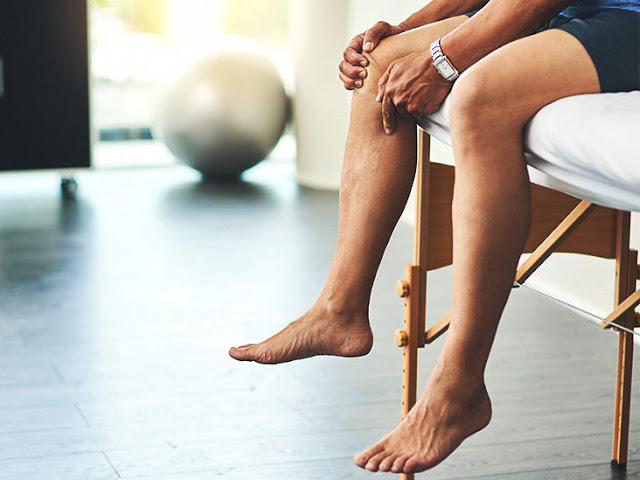How can you clear out Kidney Stones?
Kidney stones are hard pebbles that are formed inside your kidneys. Kidney stones are often composed of minerals and salts. Kidney stone symptoms are easy to identify. Kidney stone pain is intense. Kidney stone pain is easily diagnosed since it occurs on the sides and back, below the ribs. The pain may spread to the area of the lower abdomen and groin. It comes in waves and varies in intensity. It is also common to experience pain or a burning feeling while urinating.
Kidney Stone Causes
Kidney stones forms when urine has a high concentration of minerals and other substances, like calcium, oxalate, and uric acid, which combine to form crystals. A few crystals club to create one or more stones.
Kidney stones are sized from a grain of salt to pebbles or glass marbles. These are formed when your body is dehydrated and has an excess of some specific minerals. Smooth or rough, brown or yellow stones are a few possible stones variations.
A kidney stone may be small or large. It is considered when it restricts urine flow and causes significant pain. People may have to undergo Kidney Stone Surgery if the stone obstructs the urine route. Ayurvedic Kidney Stone Medicines can easily dissolve stones and prevents their recurrence.
People found the pain of stones worse than the pain during labour pain. Ayurvedic Kidney Stone Treatment has been proven effective in providing relief for Kidney Stone pain.
Kidney Stone Treatment
Small stones with few symptoms
The majority of small kidney stones do not require invasive treatment. You can flush out a little stone by drinking water only.
- Water Drinking 1.8 to 3.6 litres of water per day will dilute urine and may prevent stone formation. Unless otherwise directed by your doctor, drink adequate liquids, preferably water. It will almost clear your urine.
- Pain relievers Analgesics are pain relievers. Passing a little stone might be very uncomfortable. Doctors usually prescribe ibuprofen (Advil, Motrin IB, and others) or naproxen sodium (Aleve) to alleviate minor pain.
- Medical treatment. Your doctor may prescribe medications to help pass a kidney stone. An alpha-blocker is a type of drug that relaxes the ureter muscles and helps the urine to pass easily with minor pain.
Large stones and those that cause symptoms
Parathyroid glands
Larger kidney stones found to be larger can cause bleeding, kidney damage or recurrent urinary tract infections. These may necessitate more extensive treatment. Kidney stone removal procedures may include the following:
Sound waves (SW)
Sound Waves are used to break the stones. Your doctor may propose extra corporeal shock wave lithotripsy (ESWL. This is used for specific kidney stones, depending on their size and location.
ESWL generate intense vibrations (shock waves) that break the stones that can be easily passed in your urine. The procedure takes about 45 to 60 minutes and can be painful.
Blood in the urine, bruises on your back or abdominal region, bleeding around the kidney and other nearby organs, and discomfort as stones move through the urinary tract, are all symptoms of ESWL.
Surgery
It is done to remove large kidney stones or stones stuck in a specific location. Percutaneous nephrolithotomy is a surgical treatment that removes a kidney stone using small telescopes and instruments placed through a small incision in your back.
Using a scope to remove stones.
Your doctor may use a ureteroscope consisting of a camera into your ureter through the urethra and bladder to remove tiny stones from your ureter or kidney.
Once the stone’s position is located, specialised instruments are used to smash it into fragments that can easily pass through your urine. After that, your doctor might insert a tiny tube (a stent) into the ureter to reduce swelling and encourage recovery. A general or local anaesthetic may be required during the treatment.
Prevention
- A combination of lifestyle modifications and drugs would be highly beneficial to prevent the formation of kidney stones. One can reduce the risk of Kidney Stones if one sips water continuously throughout the day. People having a history of kidney stones are advised to consume enough fluids to produce 2 litres of urine daily.
- You are advised to consume more water if you frequently exercise, live in a hot, dry region, or live a very active lifestyle. The colour of your urine indicates your hydration level. You're probably getting enough water if your urine is light and clear.
- One should eat fewer meals high in oxalate if one is suspected of developing kidney stones. Your doctor might also advise you to limit foods high in oxalates if you frequently get calcium oxalate stones.
- One should opt for a diet low in animal protein and salt. Reduce your sodium intake. Go for plant-based protein sources like lentils. You can continue eating calcium-rich foods, but you must be cautious with calcium supplements. Calcium present in foods doesn't have an adverse effect on your kidneys.
- Calcium supplements are found to be linked with an increased risk of kidney stones. One may reduce this risk by taking supplements with meals. It should also be noted that a diet low in calcium may increase kidney stone formation.
- Adopting a diet and lifestyle pattern that would reduce the risk of kidney stones with the help of a Dietitian.





Comments
Post a Comment